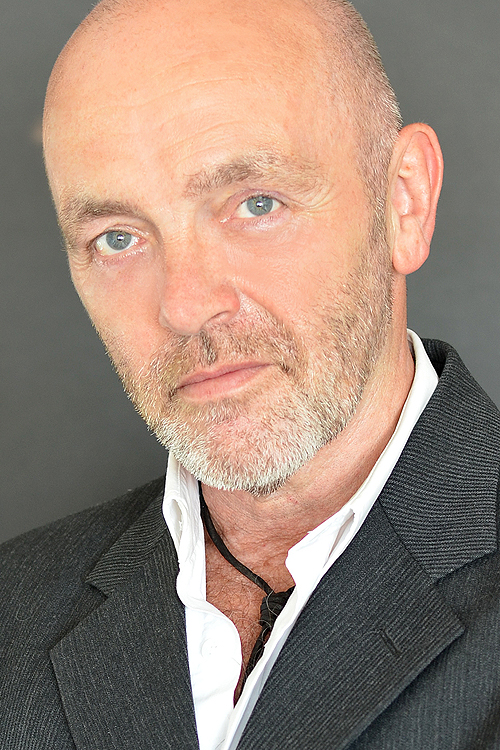Wagner Tristan und Isolde (Midsummer Opera)
“John Upperton sang Tristan’s taxing role with a powerful sense of drama and a glowing richness which brought out the baritone qualities in his voice, responding to Lisa Stonham’s tender cor anglais as though they were singing in duet.” (Katie Barnes, Wagner News)
Wagner Siegfried (Gafa Arts)
“John Upperton’s Mime … ably compensated for the lack of subtitles with excellent diction and the guileful delivery of [a] practised Wagnerian … [his] University Challenge exchange of wits [with the Wanderer] supplied the highlight of the First Act.” (Peter Quantrill, The Arts Desk)
Wagner Siegfried (Gafa Arts)
“John Upperton, who must be one of the most versatile tenors on the planet (the day after Rheingold, I heard him sing Verdi and Dvořák with equal aplomb), was a most winning Mime who resembled a mournful bloodhound that just knew that it was going to be kicked. In Siegfried it was revelatory to hear the role sung by a voice of Heldentenor capability, and he articulated each word exquisitely. Act I became a duel between two Heldentenors. Most Mimes are hyperactive, but Upperton made the character’s conflict almost entirely internal, with his stillness and concentration contrasting with Siegfried’s flamboyance. That sense of control made his final scene, when Mime unwittingly kicks over all the traces, all the more striking and delicious.” (Katie Barnes, Wagner News)
Wagner Tannhäuser (Midsummer Opera)
“John Upperton, pitched instantly into title role’s most demanding music, gave the Rome Narrative wonderful, full-bodied tone and immense dramatic urgency which made me quite forget that I had heard the music before. His fining down his the voice into a thread for Heilige Elisabeth was masterfully done.“ (Katie Barnes, Wagner News)
Puccini Tosca (Midsummer Opera)
“Tonight’s Tosca should perhaps have been titled Cavaradossi. … And in his big moment – the aria ‘E lucevan le stelle’ in which he contemplates life in light of his imminent death – Upperton (who’s appeared with both Royal Opera and English National Opera) makes us believe that for him, singing is as natural as talking.” (Francesca Wickers)
Donizetti Dom Sébastien (Royal Opera House, Covent Garden)
“Amongst the smaller roles John Upperton (Dom Antonio) caught my ear, with absolutely clear diction.” (Serena Fenwick, Musical Pointers)
Ponchielli La Gioconda (Midsummer Opera)
“John Upperton, Powerful but lean of voice, brought a buccaneering edge to Enzo and deserves special credit for opening ‘Cielo e mar’ his big tenor moment, as a gentle rhapsody.” (Yehuda Shapiro, Opera)
Verdi Macbeth (Midsummer Opera)
John Upperton naturally took the place apart with Macduff’s single aria and made much of the character. (Katie Barnes, Music Club London, Harmony Magazine)
Giordano Andrea Chénier (Midsummer Opera)
… John Upperton’s singing as Chénier was on a heroic scale with a full, ringing tone… (Midsummer Opera, Andrea Chénier, March 2019) (Katie Barnes, Music Club of London, Harmony Magazine)
Verdi Otello (Midsummer Opera)
“John Upperton has the ideal tenor for Othello, with lyrical sound that is pure, powerful, and ringing: spot-on pitches; no forcing, shouting or screaming; intelligible, communicative command of Italian. Verdi would have admired him mightily.” (Andrew Porter, Opera)
Janáček Zápisník Zmizelého (Beckenham Festival)
“In strong and unflagging voice he gave a stunning performance, combining impeccable Czech and the full variety of Janáček’s declamation without sacrificing any of his searing lyricism.” (Dvořák Society Journal, Terry Heard)
Rossini Ermione (Queen Elizabeth Hall)
“…while Upperton, his voice flowing like silk, disquietingly conveyed Pirro’s hauteur.” (The Guardian)
“As Pirro, John Upperton’s tenor had more of an Italianate ring, and he negotiated the fearsome colorature and tessitura with aplomb.” (Opera)
Rossini La Donna del Lago (St John’s, Smith Square)
“…there was one tenor equal to the challenge, John Upperton, who flung off Roderick’s more-than-two-octave scale leaps with confident, ringing tone.” (The Times)
“John Upperton threw out Rodrigo’s scintillating high Cs with apparent ease.” (The Guardian)
